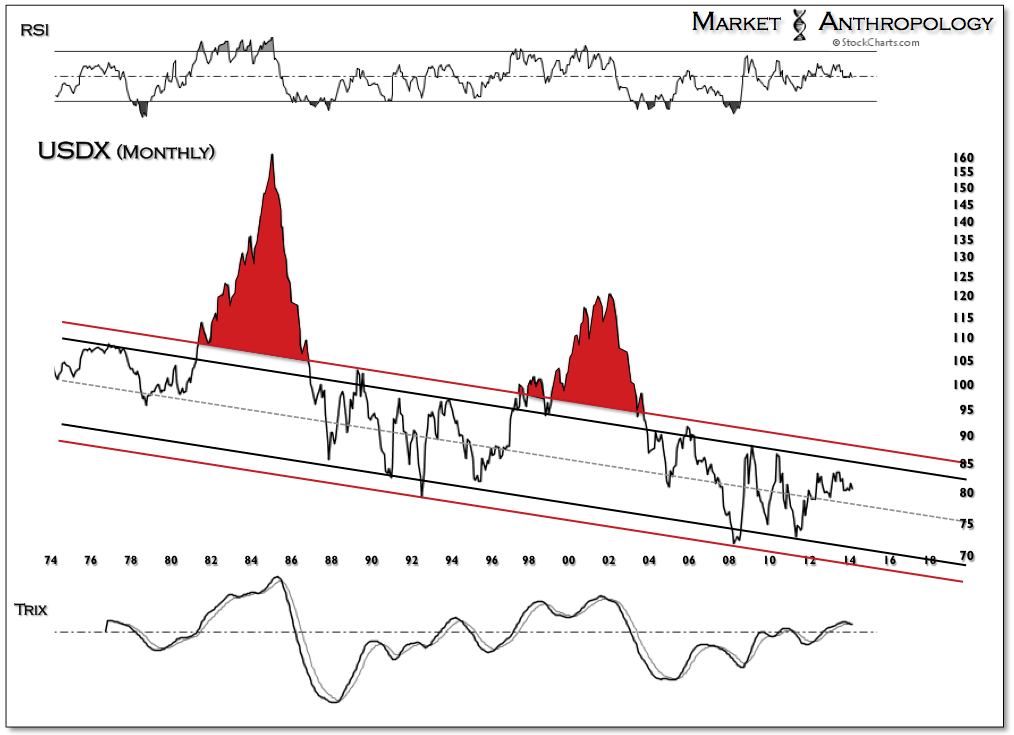The euro is finding a bid this morning on news that inflation has stabilized in the "danger zone" in Europe. For those participants looking for the ECB to take more drastic monetary measures to fight the prospect of deflation, the data reads as cold water towards immediate action. Having said that, although the data is viewed in the markets rear view mirror and likely just a pause, the catalyst for breaking higher out of its ~ 5 month old range comes at the perfect time for our comparative profile that we have been following for several months with another counterintuitive deflationary currency trend, namely the yen -- circa 2003.
Below you'll find an update of our "EKG in Deflation" series, which contrasts the performance of two currencies (the yen, circa 02-03' & the euro - circa 12-14') -- subsequent to the initiation of extraordinary monetary policies. Broadly speaking, although the policy measures were unique for each period, they were both implemented to stem the greater deflationary forces working against their respective economies. What's interesting to note -- although nuanced for each period, is similar to the yen's display of strength at the expense of the US dollar in 2002-2003, the currency exchange exported inflation overseas while taking on the greater deflationary tide at home.
We continue to expect that similar to the yen in 2003, the euro will breakout of the consolidating range it has been in since last fall.
Putting in context the prospect for another push lower in the US dollar index (USDX), we can see that the dollar has traded in a relatively narrow and defined channel for the most part since being floated in the early 1970's. While it has never violated the bottom of its long-term range, it broke higher briefly on two occasions. In our opinion, the first was largely due to the draconian interest rate hikes that Volcker initiated to break the inflationary cycle at the beginning of the 80's; and the second was aided by the introduction of the euro to the financial markets in January of 1999 - which temporarily put pressures on the worlds biggest and deepest exchange rate.
3rd party Ad. Not an offer or recommendation by Investing.com. See disclosure here or
remove ads
.
From a strategic point of view we continue to expect that the dollar will test the lower range of the index as it did during the pivot in monetary posture in 1994-1995. The biggest risk to the bottom rail of support would be that the index becomes influenced at a major technical bearing by two major forces: deflation in the euro-zone and the potential traction of demand at home to the significant monetary reserves accumulated over the past five years. Similar to the lagged influence on the US dollar in the early 80's, the inverse might be true as traction is found. While we would never expect a downside move commensurate with the upside break in the 80's, we do believe a third choir would show up and do their part to encourage their respective inflationary interests.



